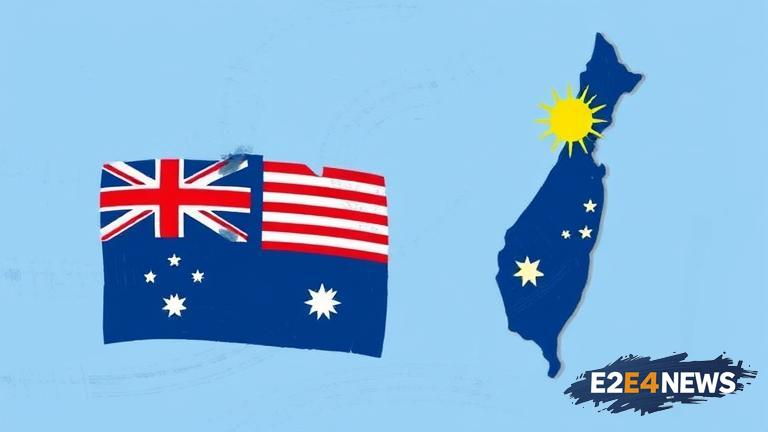The United States has formally requested that Australia disclose its plans and strategies in the event of a conflict over Taiwan, as tensions between the US, China, and Taiwan continue to escalate. This move by the US underscores the complexity and gravity of the situation, with Australia’s response potentially having significant implications for regional and global stability. The request comes at a time when Australia is navigating its own diplomatic and military relationships with both the US and China, its largest trading partner. The Australian government has been urged to provide a clear and definitive stance on the matter, taking into account the country’s historical alliances, economic interests, and geopolitical positioning. The potential for conflict over Taiwan is increasingly becoming a point of concern for nations around the world, given the island’s strategic importance and the assertive stance of China in the region. China views Taiwan as a part of its territory and has threatened to use force to bring the island under its control if necessary. The US, on the other hand, has committed to supporting Taiwan’s defense, which could potentially draw in other nations, including Australia, in the event of a conflict. Australia’s military has been modernizing and expanding its capabilities in recent years, with a focus on interoperability with US forces, which could be significant in a Taiwan conflict scenario. However, the country’s military preparedness and its ability to project power in the region are subjects of ongoing debate and analysis. The diplomatic aspect of the situation is equally complex, with Australia seeking to balance its alliance with the US with its economic relationship with China. The Australian public and political landscape are divided on the issue, with some advocating for a strong stance in support of the US and Taiwan, while others urge caution to avoid antagonizing China. The government is under pressure to articulate a clear policy that addresses these competing interests and concerns. In response to the US request, Australia has indicated its commitment to peace and stability in the region but has stopped short of providing a detailed plan of action in the event of a war. This stance reflects the delicate balance Australia must maintain between its strategic partnerships and its economic interests. As the situation continues to unfold, Australia’s position will be closely watched by both the US and China, as well as other nations in the region, as it has the potential to influence the trajectory of any conflict. The implications of Australia’s decision will extend beyond the immediate context of a Taiwan conflict, affecting the broader geopolitical landscape of the Indo-Pacific region. Ultimately, the challenge for Australia will be to navigate this complex situation in a way that upholds its national interests while contributing to regional and global security. The coming weeks and months will be crucial in determining the course of action Australia will take and how its relationships with the US and China will evolve as a result.
